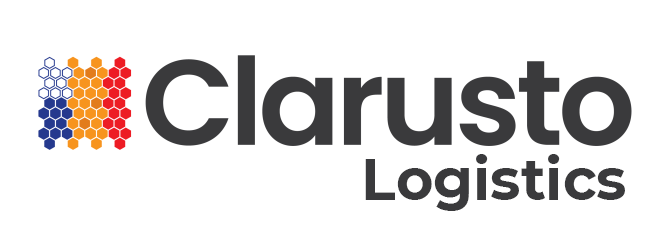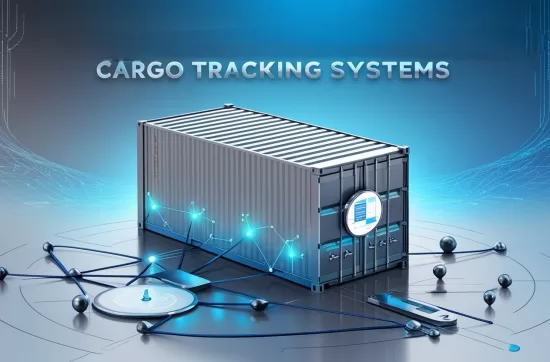Discover how machine learning enhances cargo tracking, optimizing logistics with smarter, real-time solutions for faster and cost-effective delivery. Introduction Machine learning in cargo tracking is revolutionizing today’s fast-paced logistics and supply chain landscape; machine learning is a game-changer for cargo tracking systems. With its ability to process massive amounts of data, predict outcomes, and optimize operations, machine learning in cargo tracking is transforming how goods are tracked, managed, and delivered.. This innovation leads to improved efficiency, reduced costs, and more accurate delivery schedules, helping businesses stay competitive in a constantly evolving market The Evolution of Cargo Tracking Systems Before the rise of machine learning in cargo tracking, shipment tracking was manual, relying on paperwork, phone calls, and outdated systems. With advancements like GPS and RFID, tracking improved but still had gaps in predicting disruptions and optimizing operations. That’s where machine learning steps in. This technology, a branch of artificial intelligence (AI), learns from data patterns and continuously enhances its predictions, delivering significant improvements in cargo tracking. 1. Predictive Analytics to Avoid Delays Delays are a constant challenge in logistics, often caused by weather, traffic, or unforeseen events. Traditional systems react to these issues, but machine learning predicts them. By analyzing historical data and real-time conditions, machine learning can forecast potential disruptions, allowing companies to adjust routes or schedules before issues arise. This machine learning-powered predictive analytics ensures that shipments reach their destination more reliably, reducing costs and improving customer satisfaction. 2. Route Optimization for Efficiency Optimizing delivery routes is crucial for saving time and reducing fuel consumption. Machine learning evaluates factors like traffic, weather, and fuel costs to suggest the best delivery paths. Real-time updates enable systems to adjust routes automatically if conditions change, ensuring minimal delay. This reduces operational costs and supports greener logistics by lowering emissions, making machine learning in cargo tracking systems a key to sustainability. 3. Fleet Management Enhancement Managing a fleet of vehicles requires close monitoring of maintenance schedules, fuel consumption, and vehicle performance. Machine learning takes fleet management to the next level by predicting when vehicles need maintenance, preventing breakdowns, and reducing downtime. This predictive approach helps ensure shipments are delivered on time and fleet operations remain efficient. 4. Real-Time Monitoring for Better Decision-Making Machine learning processes vast amounts of data in real-time, offering logistics companies critical insights for better decision-making. For instance, sensors in shipping containers monitor conditions like temperature and humidity, and machine learning algorithms alert teams to potential issues, such as perishable goods being at risk. These real-time alerts help prevent spoilage or damage, ensuring goods are delivered in optimal condition. 5. Fraud Detection and Risk Management Cargo theft and tampering are significant risks in logistics. Machine learning can detect anomalies in shipment data, identifying potential fraud before it happens. For example, if a container strays off its planned route or if unauthorized access is detected, machine learning flags the situation for investigation. Integrating machine learning with blockchain can further secure shipments by providing a transparent, tamper-proof record of every stage of the process. The Future…
Posts Taggedsmarter logistics
Machine Learning Revolutionizes Cargo Tracking Systems
INTRO In the rapidly evolving world of logistics and supply chain management, technology is playing an increasingly pivotal role. One of the most transformative technologies reshaping the landscape of cargo tracking systems is Machine Learning. With its ability to learn from vast amounts of data, make predictions, and provide actionable insights, machine learning is revolutionizing how goods are tracked, managed, and delivered globally. As a result, businesses are experiencing improved efficiency, reduced costs, and more accurate delivery timelines. The Evolution of Cargo Tracking Systems Before delving into how technology is transforming cargo tracking, it’s essential to understand how these systems have evolved. Historically, tracking shipments involved manual data entry, phone calls, and paper trails, leading to inefficiencies and delays. Over time, systems improved with the advent of RFID technology, GPS tracking, and real-time monitoring. However, despite these advancements, there were still gaps in predicting delays, optimizing routes, and managing logistics, leaving room for further innovation. Advanced analytics has stepped in to address these challenges, providing powerful tools for predictive analytics, route optimization, and real-time decision-making in cargo tracking. Enter Machine Learning (ML) – a subset of artificial intelligence (AI) that uses algorithms to analyze large datasets, recognize patterns, and make predictions. Unlike traditional systems that rely on pre-programmed instructions, machine learning systems can learn from the data they process, continually improving their accuracy and performance. How Machine Learning Enhances Cargo Tracking 1. Predictive Analytics for Delays and Disruptions One of the most significant challenges in cargo tracking is predicting delays due to factors like weather conditions, traffic, port congestion, or unforeseen circumstances such as natural disasters. Traditional systems often react to these issues after they have occurred. However, advanced analytics can analyze historical and real-time data to predict potential disruptions before they happen. For example, by examining patterns in previous deliveries, these systems can anticipate how weather conditions might affect a particular route, allowing businesses to make proactive adjustments. With these technologies, companies can improve forecasting accuracy and minimize delays by making data-driven decisions based on predictive insights. By predicting these delays, logistics companies can reroute shipments, adjust schedules, or notify customers ahead of time, enhancing overall supply chain reliability. 2. Route Optimization Another critical area where advanced analytics is making a substantial impact is route optimization. Logistics companies face constant pressure to deliver goods quickly and cost-effectively. Analytics algorithms can analyze various factors, such as traffic conditions, fuel consumption, and weather patterns, to suggest the most efficient delivery routes. This not only speeds up delivery times but also reduces fuel costs and lowers carbon emissions. In addition, machine learning systems can continually update routes in real time, adjusting for changing conditions. For example, if a major highway suddenly becomes congested, the system can reroute trucks automatically, ensuring minimal delay. 3. Enhancing Fleet Management Fleet management is a crucial aspect of cargo tracking, involving the monitoring and maintenance of vehicles that transport goods. Machine learning can improve fleet management by predicting when a vehicle might need maintenance based on its performance history, fuel consumption, and…



